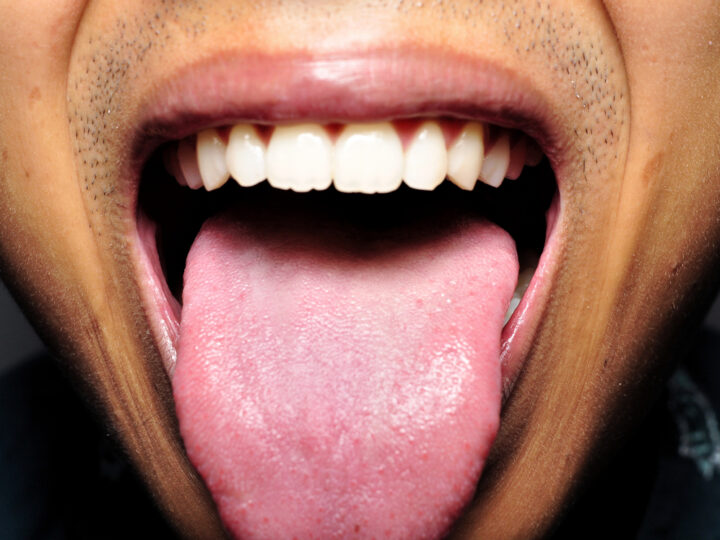DREAM INTERPRETATION
5 Shen and TCM Based

The Concept of the Five Shen
In Traditional Chinese Medicine (TCM), the Five Shen (五神) represents the five spirits associated with the five major organs: Shen (Heart), Hun (Liver), Po (Lung), Yi (Spleen), and Zhi (Kidney). These spirits govern mental, emotional, and spiritual activities and play a crucial role in health and disease. The balance and interaction of these spirits are essential for physical and psychological well-being.
Shen (Heart)
The Shen resides in the heart and governs consciousness, cognition, emotions, and sleep. It is responsible for clear thinking, perception, and the ability to maintain emotional balance. When the Shen is disturbed, it can lead to insomnia, anxiety, and vivid or disturbing dreams.
Hun (Liver)
The Hun is housed in the liver and is associated with the ethereal soul. It influences vision, planning, creativity, and the ability to dream. The Hun’s activity is more pronounced during sleep, facilitating the movement and resolution of emotional experiences through dreams.
Po (Lung)
The Po, or corporeal soul, resides in the lungs and is related to physical sensations, instincts, and somatic awareness. It is the spirit responsible for primal reactions and the body’s immediate response to stimuli. Po disturbances often manifest as issues with breathing and physical discomfort during sleep.
Yi (Spleen)
The Yi, located in the spleen, is responsible for intellect, thought, and intention. It governs memory, concentration, and the capacity for analytical thinking. Imbalances in the Yi can lead to overthinking, worry, and dreams that reflect unresolved intellectual or emotional issues.
Zhi (Kidney)
The Zhi is housed in the kidneys and pertains to willpower, determination, and the storage of essential life energy (Jing). It influences long-term memory, ambition, and endurance. When the Zhi is weakened, it can result in fearfulness, lack of motivation, and dreams that reflect insecurity or lack of direction.
The Relationship Between the Five Shen and Dream Patterns
Shen and Dream Patterns
 The Shen’s relationship with sleep and dreams is well-documented in TCM. A harmonious Shen results in restful sleep and peaceful dreams. However, disturbances in the Shen, often due to emotional stress or heart imbalances, can lead to insomnia and vivid, anxiety-provoking dreams. For instance, dreams of flying or falling may indicate an unsettled Shen.
The Shen’s relationship with sleep and dreams is well-documented in TCM. A harmonious Shen results in restful sleep and peaceful dreams. However, disturbances in the Shen, often due to emotional stress or heart imbalances, can lead to insomnia and vivid, anxiety-provoking dreams. For instance, dreams of flying or falling may indicate an unsettled Shen.
Hun and Dream Patterns
The Hun’s role in dreaming is central, as it facilitates the processing of emotional and spiritual experiences. When the liver is in balance, the Hun can move freely, resulting in meaningful and insightful dreams that aid emotional processing. Liver Qi stagnation or liver blood deficiency can disrupt the Hun, causing nightmares or dreams that involve anger, frustration, or unresolved conflicts.
Po and Dream Patterns
The Po’s influence on dreams is linked to the body’s physical and sensory experiences. Healthy Po manifests in dreams that involve physical activities and sensations. When the Po is disturbed, due to lung imbalances or grief, dreams may become somatic in nature, reflecting physical discomfort or themes of loss and sadness.
Yi and Dream Patterns
The Yi’s connection to thought and memory means that it significantly influences dream content. A well-balanced Yi leads to dreams that reflect intellectual clarity and resolution of daily thoughts. Spleen imbalances, often related to overthinking or worry, can cause repetitive or anxiety-laden dreams, indicating unresolved cognitive or emotional issues.
Zhi and Dream Patterns
The Zhi’s role in willpower and long-term memory translates into dreams that reflect deeper desires, fears, and motivations. When kidney energy is balanced, Zhi supports dreams that provide insight into one’s purpose and ambitions. Kidney deficiencies, however, can lead to dreams involving fear, insecurity, or a sense of being lost, reflecting a deeper lack of direction or willpower.
Dream Interpretation as a Diagnostic Tool
Analyzing Dream Themes
 In TCM, the analysis of dream themes provides valuable diagnostic insights into the state of the Five Shen and their corresponding organs. By examining the content, emotions, and recurring patterns in dreams, practitioners can identify underlying imbalances and tailor treatments accordingly.
In TCM, the analysis of dream themes provides valuable diagnostic insights into the state of the Five Shen and their corresponding organs. By examining the content, emotions, and recurring patterns in dreams, practitioners can identify underlying imbalances and tailor treatments accordingly.
For example, dreams involving excessive activity, such as running or flying, may indicate heart fire disturbing the Shen. Conversely, dreams with themes of sadness and loss may point to lung Qi deficiency affecting the Po. Nightmares involving fear or being chased could suggest kidney deficiency impacting the Zhi.
Correlating Dreams with Physical Symptoms
Correlating dream patterns with physical symptoms enhances diagnostic accuracy. For instance, a patient presenting with fatigue, poor appetite, and repetitive dreams about work or worry may have spleen Qi deficiency affecting the Yi. Similarly, a patient with liver Qi stagnation might report frustration-related dreams along with symptoms of irritability and menstrual irregularities.
Therapeutic Applications
Herbal Medicine
Herbal formulas are tailored to address specific imbalances identified through dream analysis. For instance, to calm the Shen and improve sleep, formulas like Tian Wang Bu Xin Dan (Heavenly Emperor’s Heart Tonic) are used. This formula nourishes heart Yin and blood, calming the Shen and promoting restful sleep.
To soothe the Hun and resolve liver Qi stagnation, Xiao Yao San (Free and Easy Wanderer) is commonly prescribed. This formula harmonizes the liver and spleen, alleviating emotional distress and promoting smoother emotional processing during sleep.
Acupuncture
 Acupuncture points are selected based on the Shen involved and the dream patterns observed. For Shen disturbances, points like HT7 (Shenmen) and PC6 (Neiguan) are used to calm the mind and alleviate anxiety. For liver-related Hun issues, points such as LV3 (Taichong) and GB34 (Yanglingquan) are effective in promoting liver Qi flow and reducing emotional stagnation.
Acupuncture points are selected based on the Shen involved and the dream patterns observed. For Shen disturbances, points like HT7 (Shenmen) and PC6 (Neiguan) are used to calm the mind and alleviate anxiety. For liver-related Hun issues, points such as LV3 (Taichong) and GB34 (Yanglingquan) are effective in promoting liver Qi flow and reducing emotional stagnation.
A study by Zhang et al. (2018) showed that acupuncture at these points significantly improved sleep quality and reduced anxiety in patients with heart and liver imbalances, highlighting their effectiveness in regulating dream patterns and promoting mental well-being.
Lifestyle and Diet
Dietary and lifestyle modifications support the balance of the Five Shen and the corresponding organs. For instance, reducing caffeine and alcohol intake can help calm the Shen, while incorporating liver-nourishing foods like leafy greens and sour fruits can support the Hun. Regular exercise and stress management techniques, such as meditation and Tai Chi, also play a crucial role in maintaining the balance of the Five Shen and improving dream quality.
Contemporary Research and Future Directions
Integrating TCM and Sleep Science
Modern research is beginning to explore the connections between TCM theories of the Five Shen and contemporary sleep science. Functional MRI studies have shown that acupuncture can modulate brain activity in regions associated with emotional regulation and sleep, providing a neurobiological basis for TCM practices.
For instance, a study by Liu et al. (2020) demonstrated that acupuncture improved sleep quality and reduced symptoms of insomnia by enhancing the connectivity between the prefrontal cortex and the amygdala, regions involved in emotional processing and stress response. These findings support the TCM view that balancing the Five Shen can significantly impact sleep and dream quality.
Future Research Directions
Future research should focus on further elucidating the mechanisms by which TCM treatments influence the Five Shen and dream patterns. Longitudinal studies and clinical trials that incorporate both subjective measures of sleep quality and objective biomarkers, such as cortisol levels and heart rate variability, will provide deeper insights into the effectiveness of TCM in managing sleep and emotional health.
Additionally, exploring the integration of TCM dream interpretation with modern psychological therapies, such as cognitive-behavioral therapy for insomnia (CBT-I), could offer comprehensive treatment approaches that address both the physiological and psychological aspects of sleep disorders.
Conclusion
The Five Shen provides a sophisticated framework for understanding the complex interplay between mental, emotional, and spiritual health in TCM. Dream interpretation, as a diagnostic and therapeutic tool, offers valuable insights into the state of the Five Shen and their corresponding organs. By integrating herbal medicine, acupuncture, and lifestyle modifications, TCM practitioners can effectively address the root causes of sleep disturbances and promote overall well-being. Continued research and integration with modern sleep science will further enhance the understanding and application of these ancient practices in contemporary healthcare.
**References:**
Liu, J., Zhang, Y., & Chen, Y. (2020). Neurobiological Effects of Acupuncture on Insomnia: An fMRI Study. *Neuroscience Letters*, 718, 134722.
Zhang, Q., Liu, S., & Zhao, Y. (2018). Acupuncture for Anxiety and Sleep Disorders: A Randomized Controlled Trial. *Journal of Acupuncture and Meridian Studies*, 11(2), 95-102.
Newer
The Significance of Tongue Diagnosis in TCM Dermatology
Older
The Shen-Hun Axis: Integrating Mental and Emotional Health in TCM
Comments (0)
Leave a reply
You must be logged in to post a comment.




